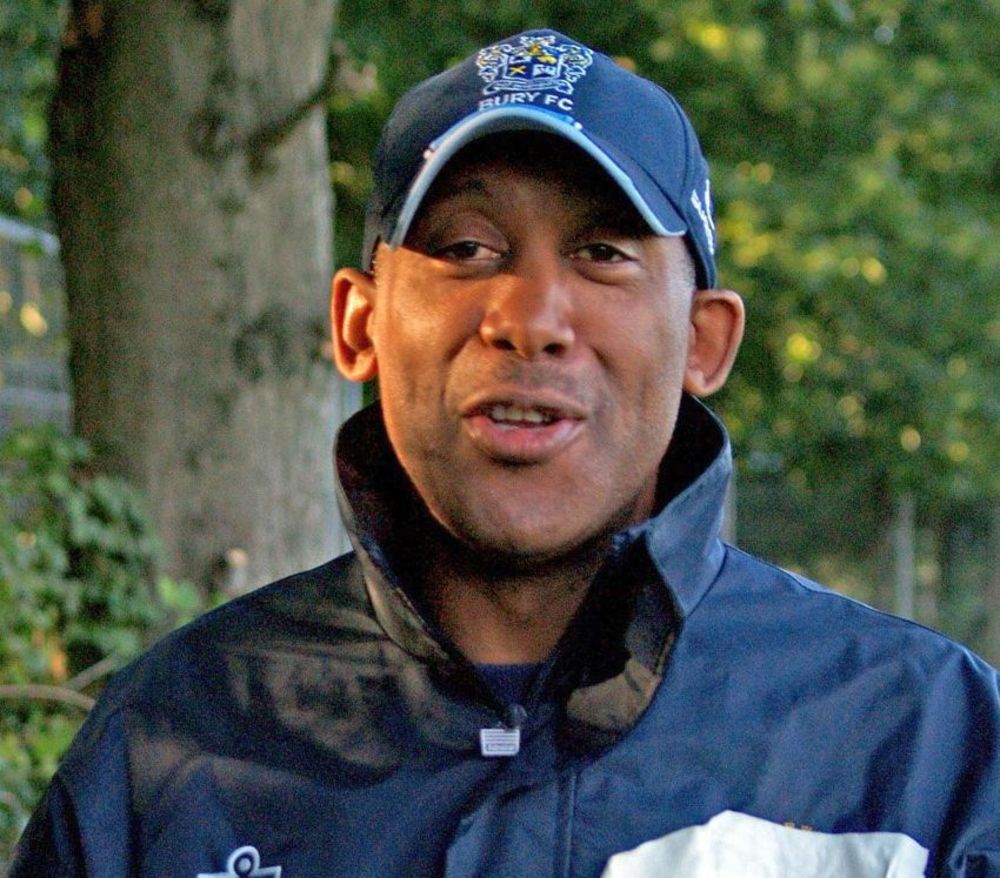
As a player Keith Alexander's was a tall, languid centre-forward with a great deal of skill.
He started his career as a youngster with Walsall before embarking on a lengthy time in non-League football at a variety of levels.
He turned out for the likes of Wisbech Town, Arnold Town, Worksop Town, Clifton All Whites, Ilkeston Town, Kimberley Town and Alfreton Town before joining Stamford in 1979.
And with the Daniels he won a unique `treble` of United Counties League championship, League Cup and FA Vase during the 1979/80 season, beating Guisborough Town in the final at Wembley, scoring the first goal.
His travels continued to Boston United in the still fairly new Alliance Premier League, King`s Lynn, Stamford again, Corby Town, Spalding United, Grantham Town and Kettering Town, where he returned to the Alliance Premier League and spent two seasons, making 76 appearances and scoring 11 goals.
He remained in the Conference when Barry Fry took him to Barnet in 1986 and he played 72 times for the Bees.
Surprisingly, at the age of 31, he finally made his Football League debut when he was signed by Alan Buckley for Grimsby Town for £11,500.
He made 83 appearances for the Mariners and remained in the League with spells at Stockport County and Lincoln City.
Whilst he was with the Imps, and at the age of 34, he won three international caps for St Lucia and, after a spell in caretaker charge, was appointed manager of Lincoln in the summer of 1993, becoming the first permanently appointed black manager in the Football League.
His tenure, however, was a brief one and he moved to Mansfield Town in 1994 and was made assistant manager in 1995 after a spell playing in Ireland with Cliftonville.
In 1995/96, Alexander took over as manager of then-Southern League Midland Division side Ilkeston Town.
The Robins had suffered relegation the season before but, after finishing third in his first campaign in charge, Alexander led the club back into the Premier Division in 97/98 as runners-up to Grantham Town.
Back in the Premier Division, Ilkeston ended in third spot and ninth the following season before being tempted away to manage in the Conference at struggling Northwich Victoria.
He helped guide Vics away from the drop and his achievements hadn`t gone unnoticed as he was brought back to Lincoln City in July 2001.
He went on to manage Peterborough United and Macclesfield Town and very sadly died after returning from a game in March 2010 at the age of just 53.
Keith Alexander is quite rightly considered to have been a pioneer of the game.
I was fortunate to get to know Keith during his days with Kettering and he even turned out for me once as the over-age player in the under-18s (one per team was allowed in the league back then) and he was absolutely brilliant with the lads.
He was also renowned for opening his car boot at the end of training revealing sacksful of Lincolnshire spuds for sale!
He was a real character and was taken from us far too soon.
From 1987 until 1992, Sudbury Town had joint managers in Don James and Martin Head. .
The pair arrived from Eastern Counties League rivals Stowmarket Town.
As players, James turned out mainly for Stowmarket, whilst Head was at Harwich & Parkeston.
The pair brought success to the club, with an FA Vase semi-final and a Suffolk Premier Cup triumph in their first season, then followed that up with going one better in the Vase, winning the league title, the League Cup and retained the Suffolk Premier Cup.
James and Head led Sudbury to the 1989 FA Vase Final at Wembley, becoming the first side from not only Suffolk, but from the Eastern Counties League to reach the showpiece.
They drew 1-1 with Tamworth before losing 3-0 in a replay at Peterborough United's London Road ground.
The following 1989/90 campaign saw Sudbury repeat the `treble` of league title, League Cup and Suffolk Premier Cup and also won promotion to the Southern League South Division.
They finished 13th in their first season at the higher level and then eighth in 1991/92 before being replaced by former Arsenal midfielder Richie Powling.
Bobby Hope was rather unfortunate to have been around in an era when Scotland possessed a plethora of midfield talent such as Jim Baxter, Dave Mackay, Billy Bremner etc.
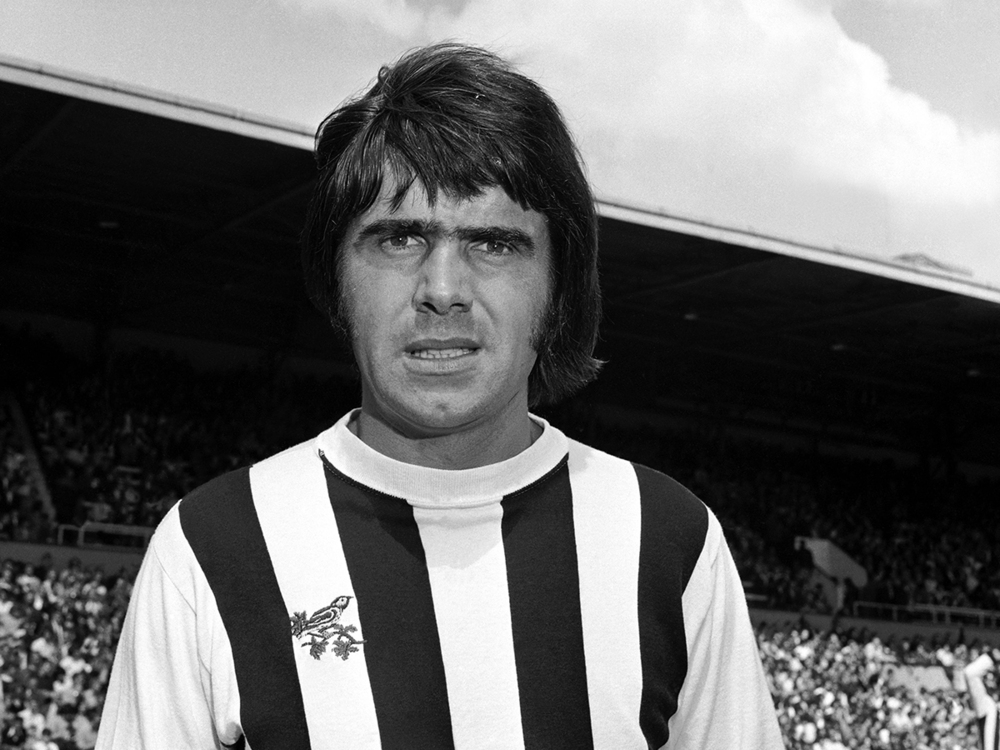
He was a silky midfielder who made 350 appearances for West Brom, scoring 33 goals, between 1960 and 1972.
He went on to have spells with Birmingham City and Sheffield Wednesday and spent a number of seasons in the United States, mostly with the Dallas Tornados.
In 1979, he signed for Southern League Midland Division side Bromsgrove Rovers and spent three years at the Victoria Ground as a player before taking over as player-manager in 1983.
He guided them to the Midland Division title in 1985/86 and to runners-up spot in their first season in the Premier Division.
After a fourth-place finish in 1987/88, Hope quit Bromsgrove due to business commitments and he did a bit of scouting for Wolves.
However, later in 1988, Hope got the management `urge` again and returned to management with Southern League Premier Division side Burton Albion.
But his spell with the Brewers was a brief one and he went back to Bromsgrove and was there for five years as they rose from the Southern League to the upper reaches of the Football Conference.
Despite being one of the division’s smaller clubs, they narrowly missed out on promotion as Martin O’Neill’s Wycombe Wanderers pipped them to the title in 1992/93.
He departed Rovers again in 1994 and returned to West Brom to become youth development officer and then chief scout.
Despite being born in Oldham, Gordon Hurst began his playing days after the Second World War at the age of 21 with Kent League side Ramsgate Athletic.
He was quickly snapped up by First Division Charlton Athletic and, although he missed out on appearing for the Latics in the 1946 FA Cup Final at Wembley, he was in the team that beat Burnley in the final after extra-time the year after.
The winger remained a regular at The Valley right through to 1958, making almost 400 appearances and scoring 75 goals.
In 1958 he joined Kent League side Tunbridge Wells United as player-manager and after finishing third in 58/59, earned a place in the Southern League First Division.
Hurst had a couple of seasons in the Southern League with Tunbridge Wells before he returned north and had a spell in charge of his home-town club Oldham Athletic.
However, with Ken Bates as chairman at the time, Hurst was one of several managers who came and went at regular intervals at Boundary Park.
In sadly died in 1980 at the age of 56.
John Murphy was a defender who began his career with Bristol City without managing to break into the senior side.
After leaving Ashton Gate, he had spells with Bishops Cleeve, Forest Green Rovers and Cinderford Town before signing for his home-town club Cheltenham Town in August 1974.
He made 222 appearances in his first spell before work commitments took him to Yorkshire earlier and he played for Scarborough in the early days of the Alliance Premier League and captained Harrogate Town to the Yorkshire League Division Two title.
He returned to Whaddon Road and was an ever-present when Cheltenham won the Southern League Midland Division championship in 1982.
He took over as player-manager initially in December 1983 and in his first full season in football management, guided the Robins to the Southern League championship in 1984/85, claiming the manager of the year award in the process and also to two FA Trophy Quarter-Final places.
He had a couple of seasons in charge of Trowbridge Town and then Gloucester City from 1994 to 1996 before joining the Cheltenham Town Board of Directors.
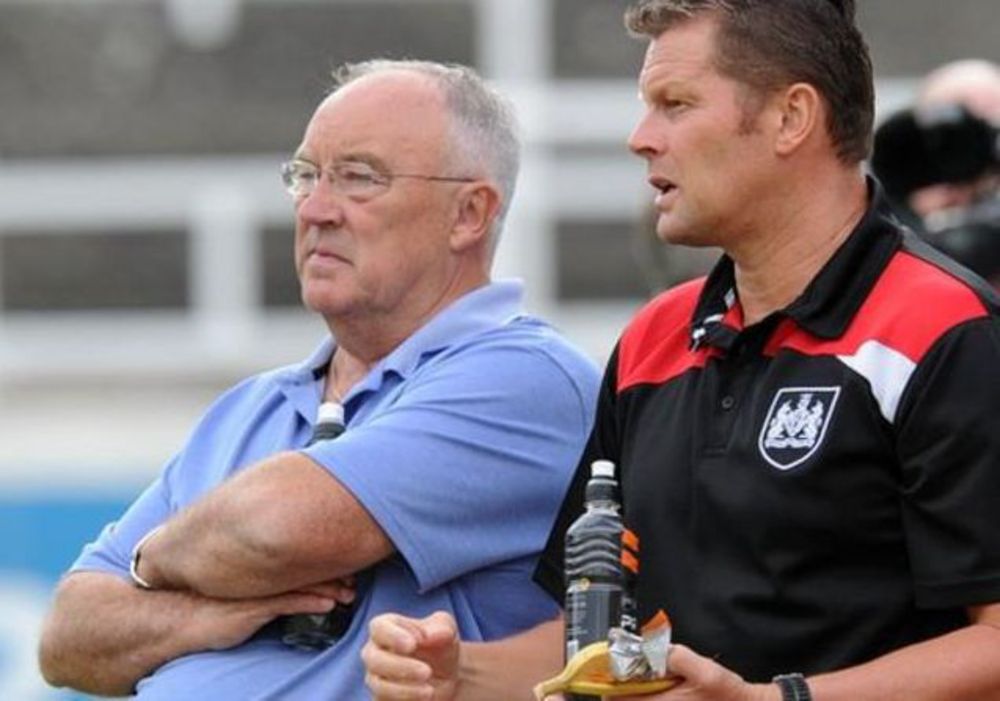
Keith Burt was the manager who took Raunds Town into the Southern League Midland Division in 1996 for what turned out to be a short four-season spell at Step 4 level for the Shopmates.
He had played for the club as well as several others in the United Counties League.
He took the managerial reigns at Raunds at the end of the 1988/89 season having been in charge for a short time before.
He led them to third, fifth, second and then to the UCL title on goal difference from Stotfold in 1995/96.
He also helped Raunds to lift the UCL KO Cup and the Northants Senior Cup.
He had a couple of seasons in charge in the Southern League before leaving and spending a successful couple of years in charge of the Northants County Youth side.
In more recent years, he has built up a reputation as a scout with Nottingham Forest and Bristol City.
He was working at Cambridge United after leaving Bristol City in 2016, where he worked alongside Steve Cotterill for three seasons as director of football.
Burt and Cotterill, who had also worked together at Forest, were re-united again in December 2020 after the latter had been appointed as manager of League One side Shrewsbury Town.
Steve Bowater managed Bilston Town in the Southern Midland Division for four years.
A former Wolverhampton Wanderers and Walsall professional, he played in the West Midlands (Regional) League and Southern League with the likes of Worcester City, Kidderminster Harriers, Alvechurch, Redditch United, OIdbury United, Blakenall, Stourbridge and Darlaston.
Managed Willenhall Town in the Southern League before switching to neighbours Bilston in 1989.
Les Riggs, who sadly passed away just after Christmas at the age of 85, came through the junior ranks with Gillingham and made his Football League debut in April 1954 at the age of just 18.
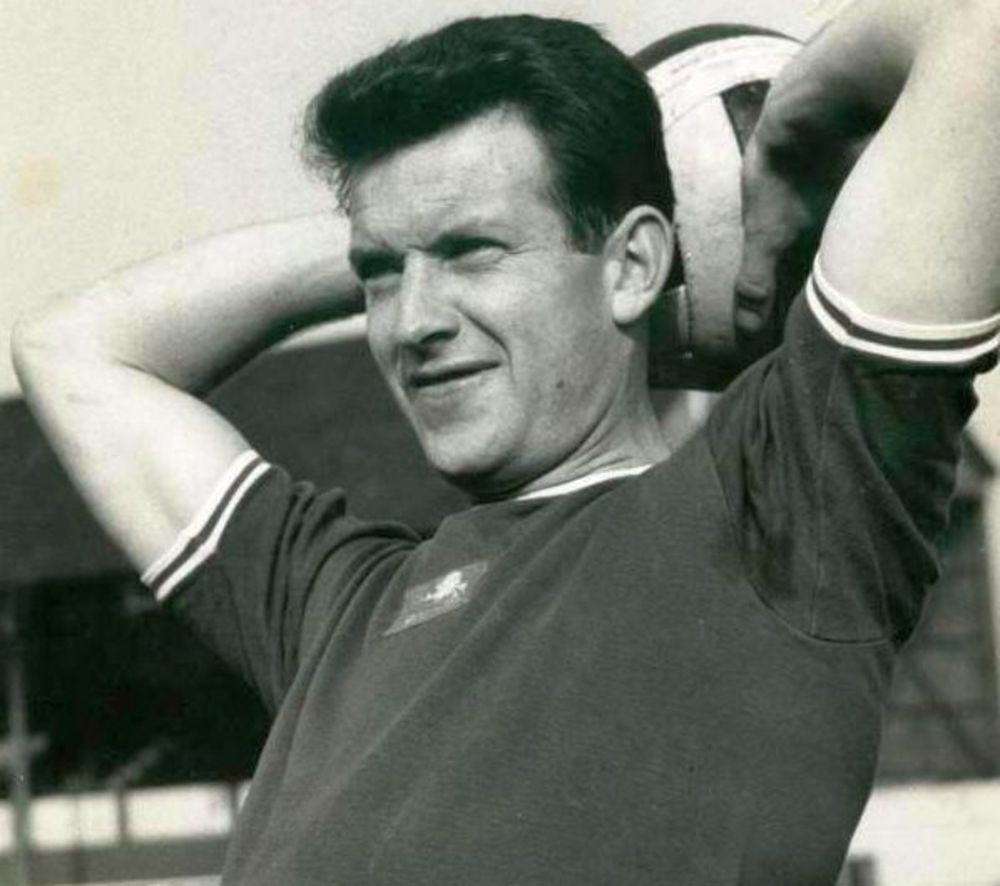
In 1958 Riggs moved to Newport County for a fee of £1,750, where he again racked up over 100 Football League appearances.
In 1961 he was sold to Bury for £750 and then moved to Crewe Alexandra in 1963.
Eighteen months later he returned to Gillingham, who were strengthening their side after promotion to Division Three and made 18 further appearances for the Gills.
In October 1965, Riggs joined Southern League Division One club Ramsgate Athletic, as they were known then, as player-manager.
Under his guidance, the Rams finished seventh three times, eighth and fourteenth.
In November 1971 he moved along the Kent coast to join Southern Premier Division Margate.
He spent until March 1977 at Hartsdown Park and led the side to the Southern League Cup final, to win the Kent Senior Cup and Kent Floodlit Trophy as well as to the First Round of the FA Cup in his first season in charge and to the Third Round in 1972/73.
The run to the Third Round saw them defeat Sutton United band Swansea City at home, Walton & Hersham away which led to a dream home tie with Tottenham Hotspur.
At the time, Spurs were the reigning UEFA Cup holders after they had won the all-English final against Wolverhampton Wanderers.
Margate`s side at the time included a former Spurs player in Eddie Clayton and goalkeeper Chic Brodie, who a couple of years earlier had his professional career with Brentford ended by a dog – an occurrence that created national headlines at the time!
Riggs` side were hammered 6-0 by Spurs, for whom Martin Chivers bagged a brace and Martin Peters, Cyril Knowles, Jimmy Pearce and John Pratt netted singles.
After leaving Margate in 1977, Riggs ran a guest house and later opened Les Riggs Sporting Goods Shop.
Sticking in Kent, Robin Thacker managed Folkestone in the Southern League Premier Division.
He took over from Alf Bentley in 1984, having previously worked with him at Dover.
Thacker had been trainer/coach under Bentley but had management experience at Faversham Town in the Kent League where he spent the majority of his playing career.
George Curtis is one of the few to have managed in the Southern League and also been in charge of a national team.
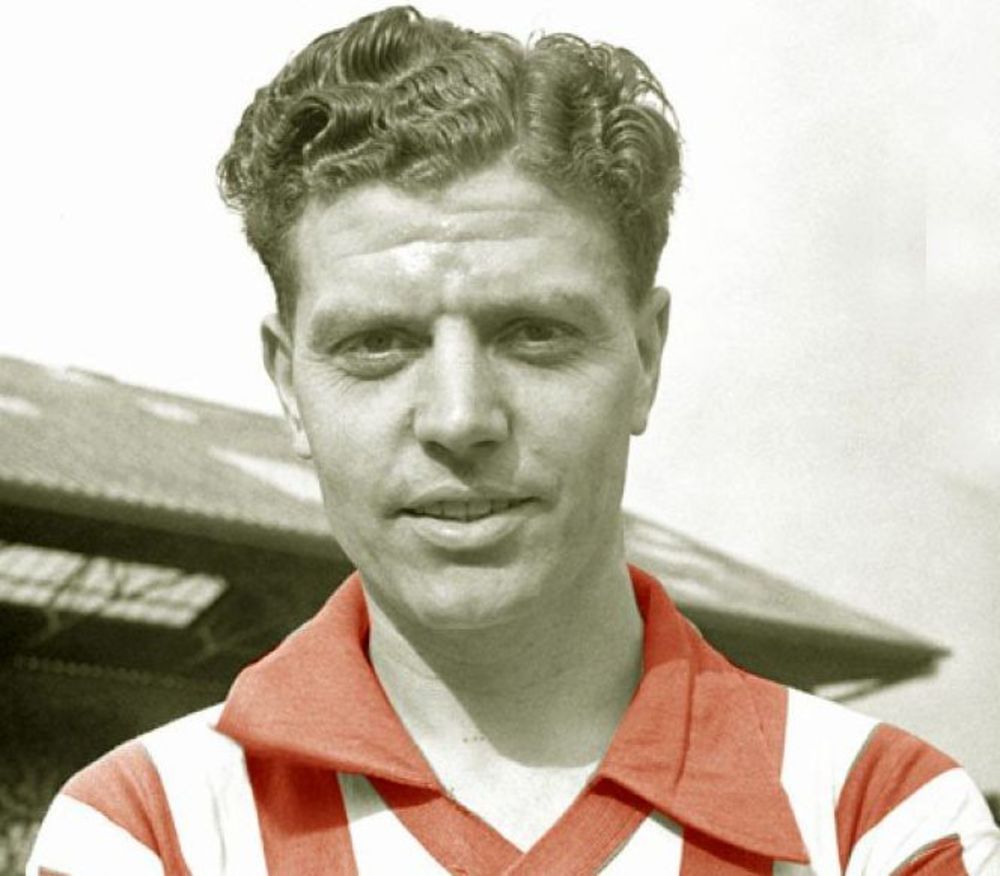
Not to be confused with the former Coventry City stalwart of the same name, he started his playing career when signing for Arsenal in 1936 aged 17.
He spent a couple of years at their then nursery club Margate in the Southern League Eastern Section on `loan` and helped to win a title.
Then, just as he was breaking into the Arsenal first team, Adolf Hitler intervened, hostilities starting with Curtis having amassed just two first-team appearances at the end of 1938/39 season.
He spent much of the war in India with the RAF and played wartime games not just for Arsenal, but West Ham United, Chelsea and Orient.
After the war he resumed his Arsenal career but approaching 27 many of his best footballing years had been taken from him in common with so many others.
After totalling 13 games for the Gunners, Curtis was signed by Bill Dodgin Snr for Southampton, being valued at £10,000 in the deal that took Don Roper to Highbury.
Inside forward Curtis earned the nickname `twinkle toes` by his new team-mates at The Dell, in an era where defenders took few prisoners!
He was a vital component of the side that for three seasons in the late 1940s was so close to promotion to the top-flight but as that side broke up, Curtis in the summer of 1952 took the then rare route of plying his trade abroad, joining French second division club Valenciennes in exchange for a fee of £1,500.
He played in France for just one season when he returned to England to embark upon a long coaching career.
He had coached the Indian Olympic squad of 1948 and this whet his appetite, he started at his local side Chelmsford City in the Southern League, initially as player-coach.
His first managerial position came in June 1961 when he was appointed manager at Brighton & Hove Albion.
However, at the end of his first season in charge, Brighton were relegated from the Second Division in last place.
He stayed at Brighton until February 1963, when he was replaced by Archie Macaulay.
He then spent time coaching Cambridge University and also Southern League Premier Division Hastings United, before taking the managerial reins at Southern First Division outfit Stevenage Town in January 1964.
He enjoyed a successful time on the field with Stevenage, leading them to sixth, fifth, eighth and then third place in the First Division, earning promotion to the Premier Division.
The club finished 18th in their only season at Premier Division level as they folded at the end of that campaign and, after a brief spell as a coach at Hull City, Curtis moved to the United States with San Diego Toros in the fledgling North American Soccer League.
He then moved to Rosenborg in Norway where he was extremely successful.
Indeed, he was so successful with Rosenborg that he was appointed Norway's national manager in 1971 - a role he held for three years, with limited success.
He was sacked after a disastrous qualifying campaign for the 1974 World Cup which included a 9-0 thrashing by Holland and even a defeat to Luxembourg.
In 1976 he returned to Rosenborg, but tragedy struck as his Norwegian wife was killed in a car crash and he asked to be released from his contract.
His final professional coaching position was two years in Quatar from 1979 to 1981.
He then retired back to his native Essex, still passionate about the game he continued to coach youth teams, sadly he died in November 2004 only a couple of weeks short of his 85th birthday.
Sadly, it was reported that he was living alone in a caravan in Chelmsford.

Most clubs are looking for volunteers. Find out more on the button below:
www.PitchingInVolunteers.co.ukAll the news and results in one place.
REGISTER